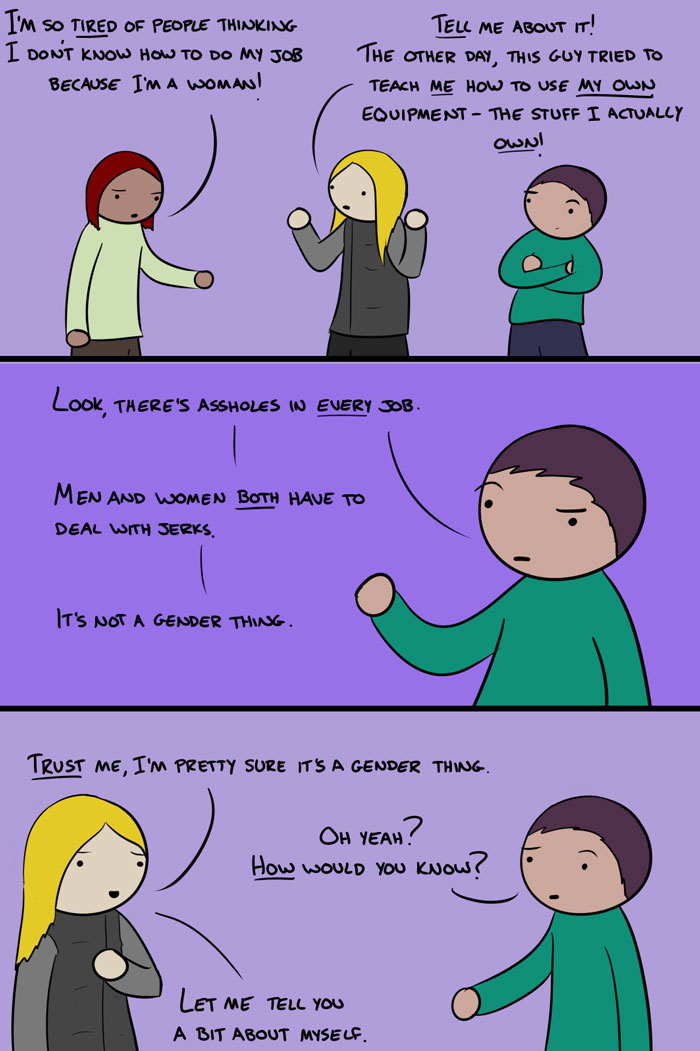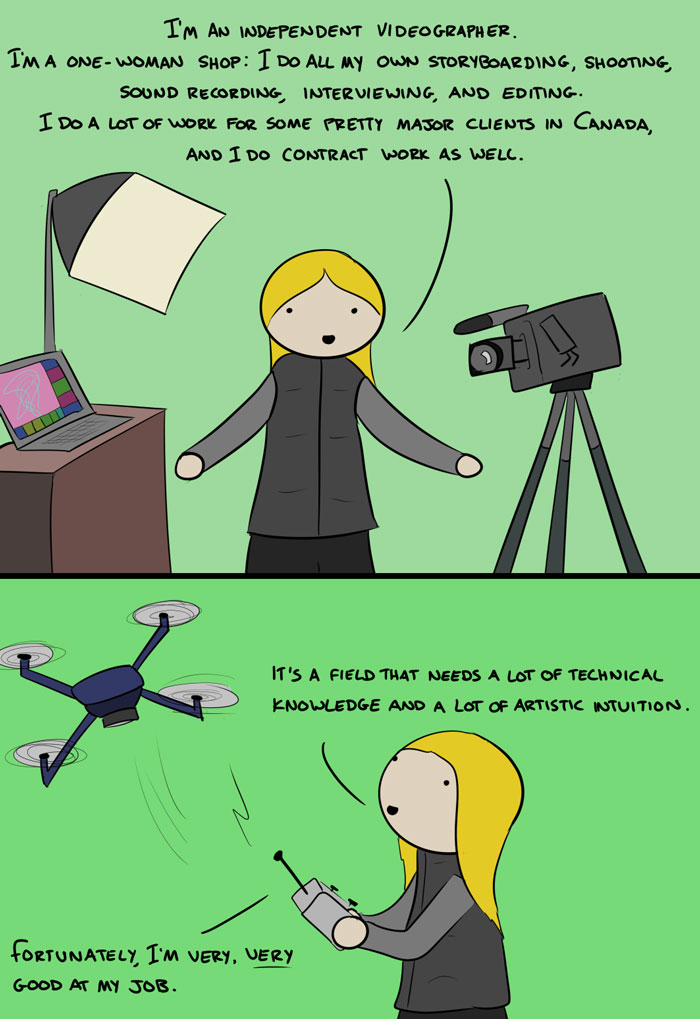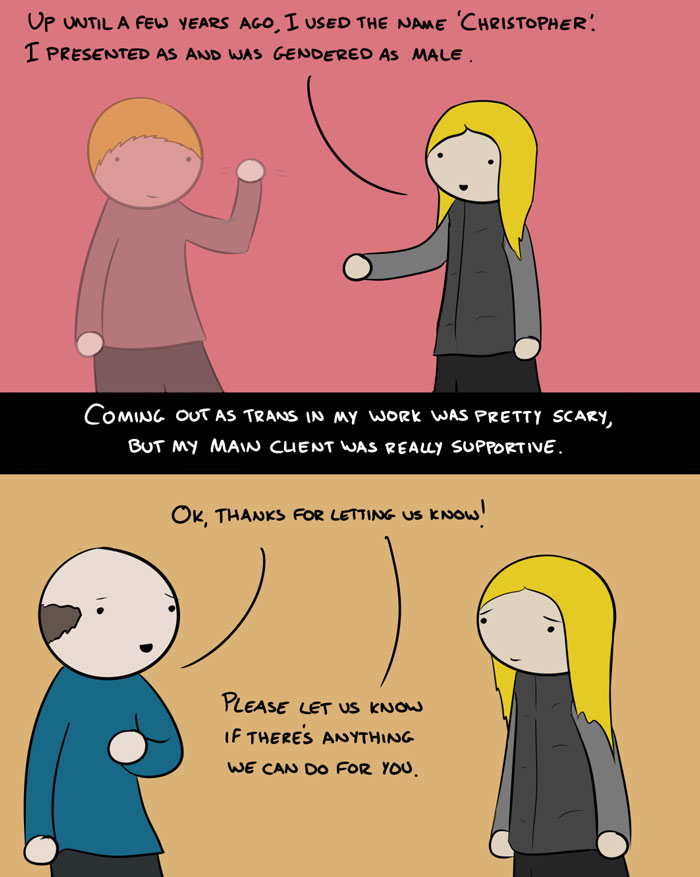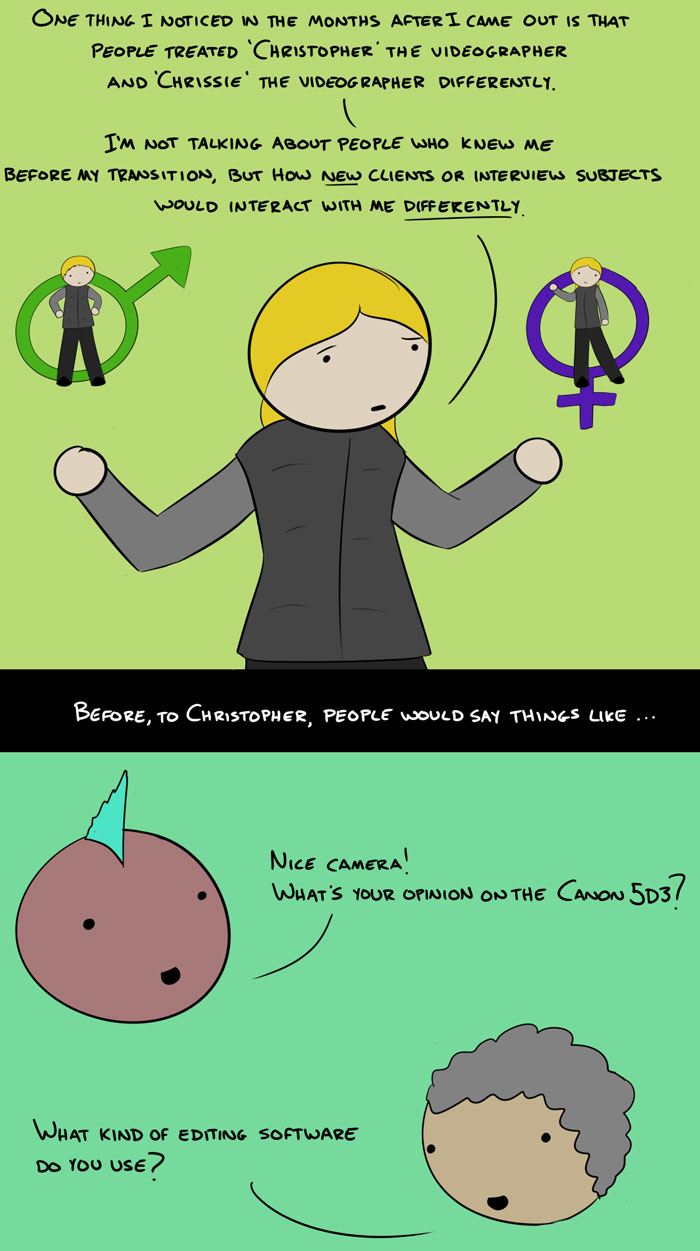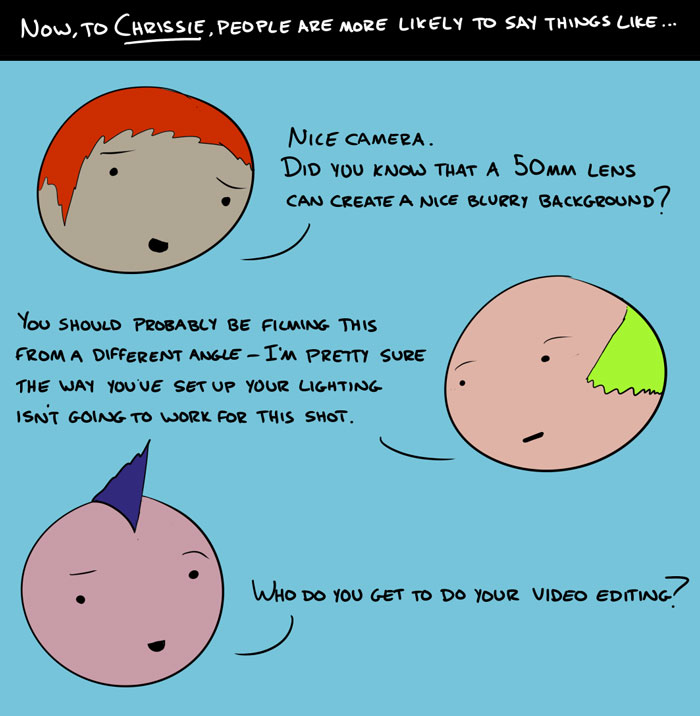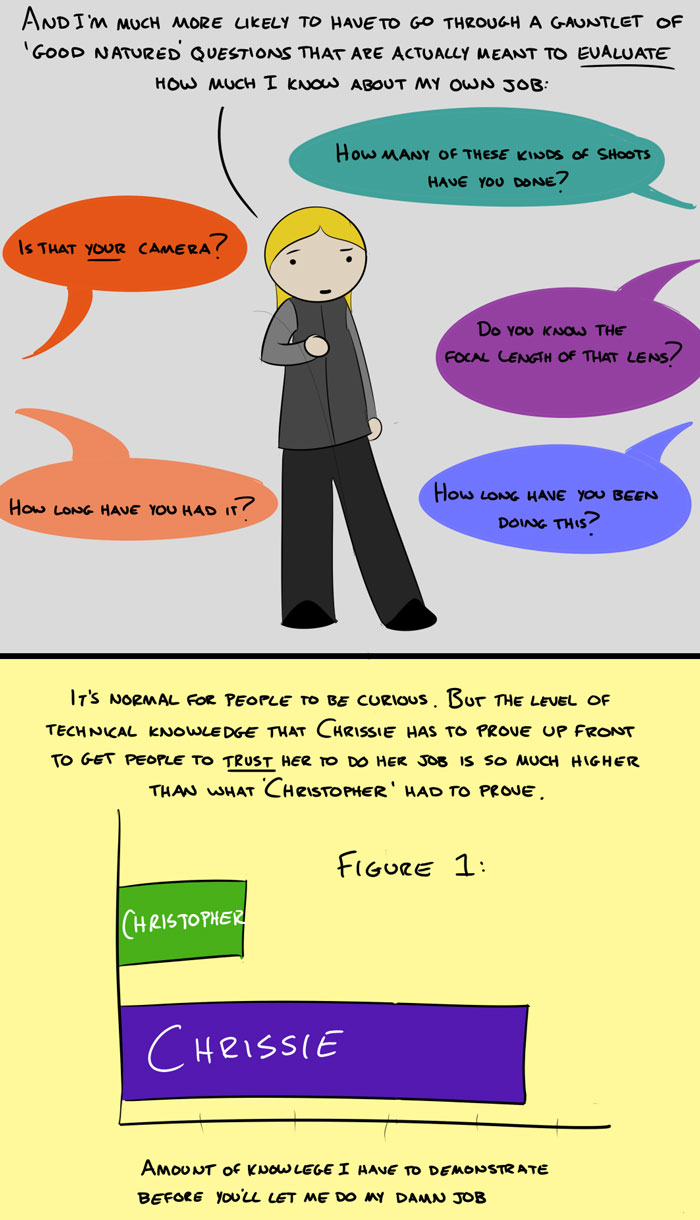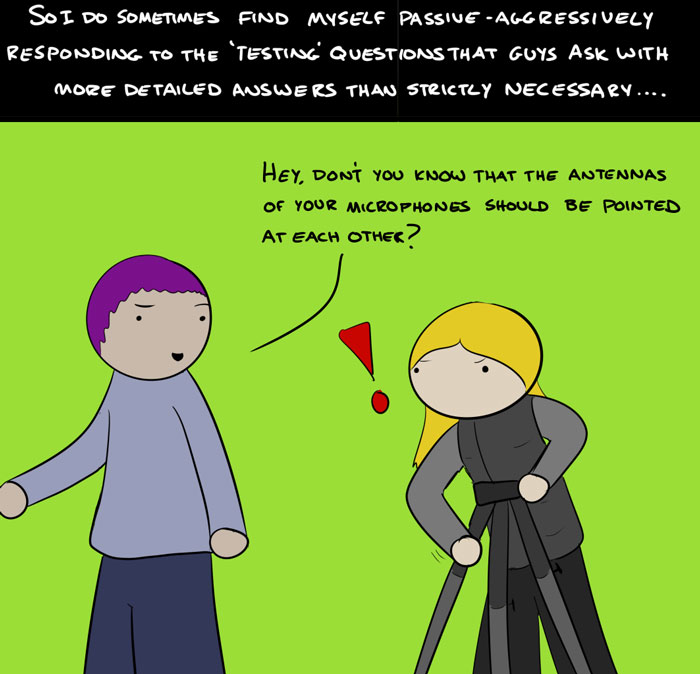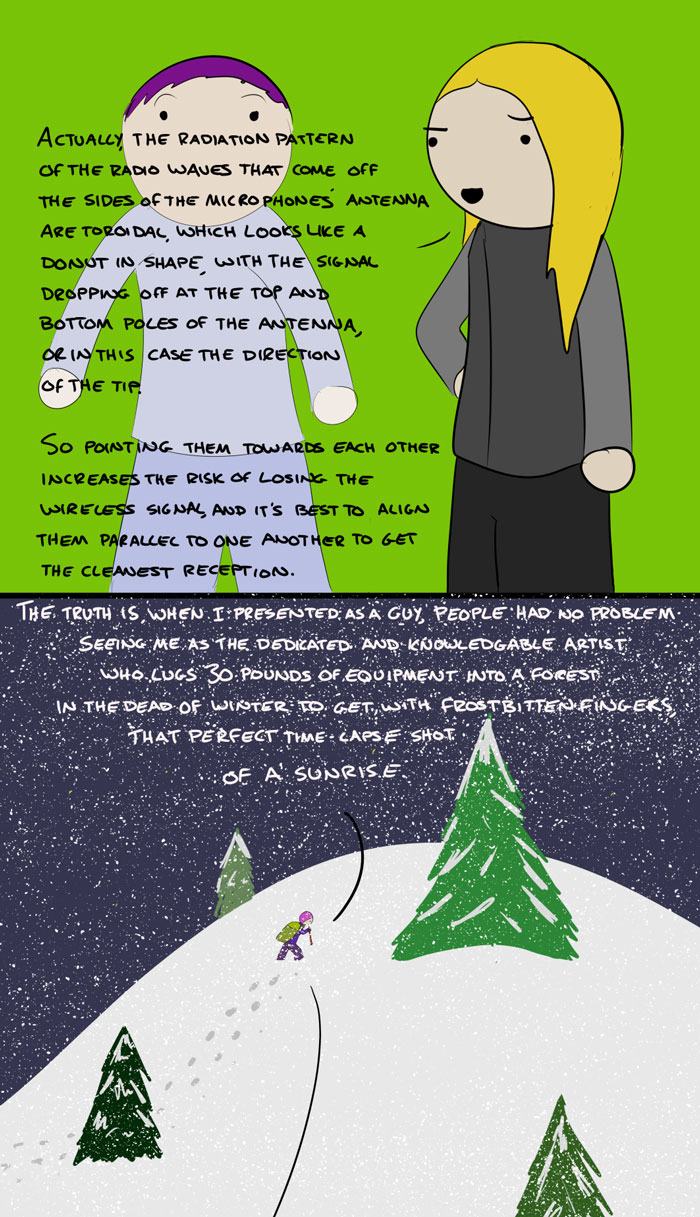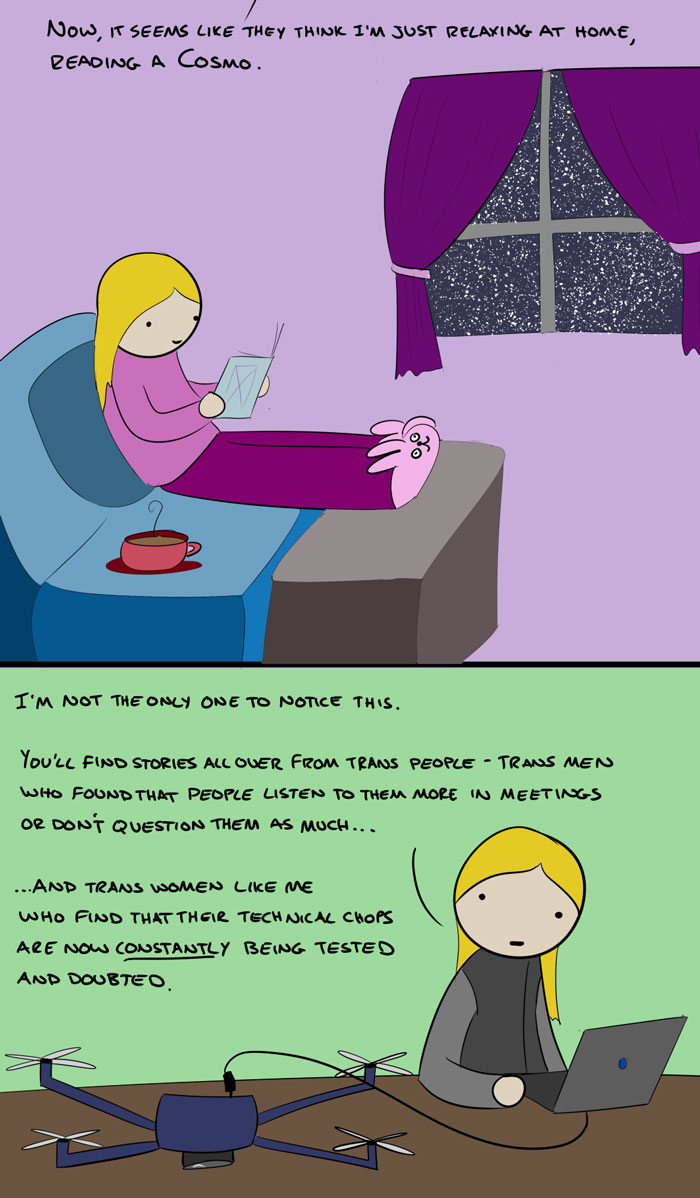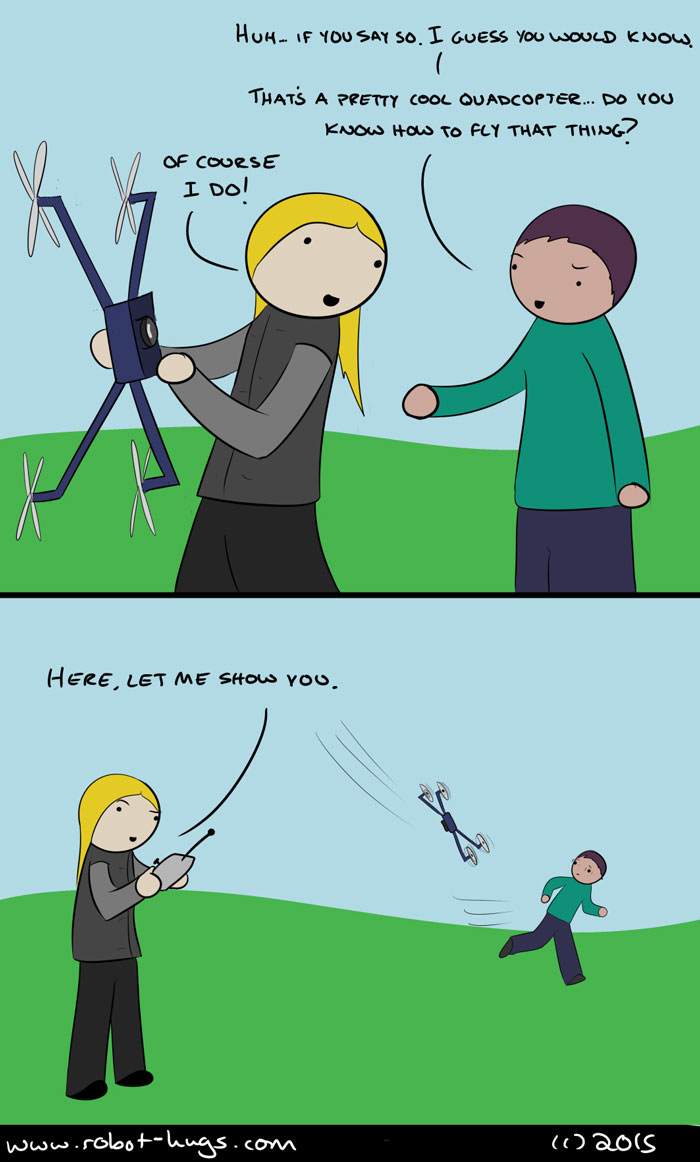Watch the video and enjoy reading the transcript below:
I am failing as a woman, I am failing as a feminist.
I have passionate opinions about gender equality, but I worry that to freely accept the label of “feminist,” would not be fair to good feminists.
I’m a feminist, but I’m a rather bad one. Oh, so I call myself a Bad Feminist. Or at least, I wrote an essay, and then I wrote a book called Bad Feminist, and then in interviews, people started calling me The Bad Feminist. (Laughter)
So, what started as a bit of an inside joke with myself and a willful provocation, has become a thing.
Let me take a step back. When I was younger, mostly in my teens and 20s, I had strange ideas about feminists as hairy, angry, man-hating, sex-hating women – as if those are bad things. (Laughter) These days, I look at how women are treated the world over, and anger, in particular, seems like a perfectly reasonable response.
But back then, I worried about the tone people used when suggesting I might be a feminist. The feminist label was an accusation, it was an “F” word, and not a nice one. I was labeled a woman who doesn’t play by the rules, who expects too much, who thinks far too highly of myself, by daring to believe I’m equal – (Coughs) – superior to a man. You don’t want to be that rebel woman, until you realize that you very much are that woman, and cannot imagine being anyone else.
As I got older, I began to accept that I am, indeed, a feminist, and a proud one. I hold certain truths to be self-evident: Women are equal to men. We deserve equal pay for equal work. We have the right to move through the world as we choose, free from harassment or violence. We have the right to easy, affordable access to birth control, and reproductive services. We have the right to make choices about our bodies, free from legislative oversight or evangelical doctrine. We have the right to respect.
There’s more. When we talk about the needs of women, we have to consider the other identities we inhabit. We are not just women. We are people with different bodies, gender expressions, faiths, sexualities, class backgrounds, abilities, and so much more. We need to take into account these differences and how they affect us, as much as we account for what we have in common. Without this kind of inclusion, our feminism is nothing.
I hold these truths to be self-evident, but let me be clear: I’m a mess. I am full of contradictions. There are many ways in which I’m doing feminism wrong.
I have another confession. When I drive to work, I listen to thuggish rap at a very loud volume. (Laughter) Even though the lyrics are degrading to women – these lyrics offend me to my core — the classic Yin Yang Twins song Salt Shaker – it is amazing. (Laughter) “Make it work with your wet t-shirt. Bitch, you gotta shake it ’til your camel starts to hurt!” (Laughter) Think about it. (Laughter) Poetry, right? I am utterly mortified by my music choices. (Laughter)
I firmly believe in man work, which is anything I don’t want to do, including – (Laughter) – all domestic tasks, but also: bug killing, trash removal, lawn care and vehicle maintenance. I want no part of any of that. (Laughter) Pink is my favorite color. I enjoy fashion magazines and pretty things. I watch “The Bachelor” and romantic comedies, and I have absurd fantasies about fairy tales coming true.
Some of my transgressions are more flagrant. If a woman wants to take her husband’s name, that is her choice, and it is not my place to judge. If a woman chooses to stay home to raise her children, I embrace that choice, too. The problem is not that she makes herself economically vulnerable in that choice; the problem is that our society is set up to make women economically vulnerable when they choose. Let’s deal with that. (Applause)
I reject the mainstream feminism that has historically ignored or deflected the needs of women of color, working-class women, queer women and transgender women, in favor of supporting white, middle- and upper-class straight women. Listen, if that’s good feminism – I am a very bad feminist. (Laughter)
There is also this: As a feminist, I feel a lot of pressure. We have this tendency to put visible feminists on a pedestal. We expect them to pose perfectly. When they disappoint us, we gleefully knock them from the very pedestal we put them on. Like I said, I am a mess — consider me knocked off that pedestal before you ever try to put me up there. (Laughter)
Too many women, particularly groundbreaking women and industry leaders, are afraid to be labeled as feminists. They’re afraid to stand up and say, “Yes, I am a feminist,” for fear of what that label means, for fear of being unable to live up to unrealistic expectations.
Take, for example, Beyoncé, or as I call her, The Goddess. (Laughter) She has emerged, in recent years, as a visible feminist. At the 2014 MTV Video Music Awards, she performed in front of the word “feminist” 10 feet high. It was a glorious spectacle to see this pop star openly embracing feminism and letting young women and men know that being a feminist is something to celebrate. As the moment faded, cultural critics began endlessly debating whether or not Beyoncé was, indeed, a feminist. They graded her feminism, instead of simply taking a grown, accomplished woman at her word. (Laughter) (Applause)
We demand perfection from feminists, because we are still fighting for so much, we want so much, we need so damn much.
We go far beyond reasonable, constructive criticism, to dissecting any given woman’s feminism, tearing it apart until there’s nothing left. We do not need to do that. Bad feminism — or really, more inclusive feminism — is a starting point.
But what happens next? We go from acknowledging our imperfections to accountability, or walking the walk, and being a little bit brave. If I listen to degrading music, I am creating a demand for which artists are more than happy to contribute a limitless supply. These artists are not going to change how they talk about women in their songs until we demand that change by affecting their bottom line. Certainly, it is difficult. Why must it be so catchy? (Laughter) It’s hard to make the better choice, and it is so easy to justify a lesser one. But — when I justify bad choices, I make it harder for women to achieve equality, the equality that we all deserve, and I need to own that.
I think of my nieces, ages three and four. They are gorgeous and headstrong, brilliant girls, who are a whole lot of brave. I want them to thrive in a world where they are valued for the powerful creatures they are. I think of them, and suddenly, the better choice becomes far easier to make.
We can all make better choices. We can change the channel when a television show treats sexual violence against women like sport, Game of Thrones. We can change the radio station when we hear songs that treat women as nothing. We can spend our box office dollars elsewhere when movies don’t treat women as anything more than decorative objects. We can stop supporting professional sports where the athletes treat their partners like punching bags. (Applause)
In other ways, men – and especially straight white men – can say, “No, I will not publish with your magazine, or participate in your project, or otherwise work with you, until you include a fair number of women, both as participants and decision makers. I won’t work with you until your publication, or your organization, is more inclusive of all kinds of difference.”
Those of us who are underrepresented and invited to participate in such projects, can also decline to be included until more of us are invited through the glass ceiling, and we are tokens no more.
Without these efforts, without taking these stands, our accomplishments are going to mean very little. We can commit these small acts of bravery and hope that our choices trickle upward to the people in power — editors, movie and music producers, CEOs, lawmakers – the people who can make bigger, braver choices to create lasting, meaningful change.
We can also boldly claim our feminism – good, bad, or anywhere in between. The last line of my book “Bad Feminist” says, “I would rather be a bad feminist than no feminist at all.” This is true for so many reasons, but first and foremost, I say this because once upon a time, my voice was stolen from me, and feminism helped me to get my voice back.
There was an incident. I call it an incident so I can carry the burden of what happened. Some boys broke me, when I was so young, I did not know what boys can do to break a girl. They treated me like I was nothing. I began to believe I was nothing. They stole my voice, and in the after, I did not dare to believe that anything I might say could matter.
But – I had writing. And there, I wrote myself back together. I wrote myself toward a stronger version of myself. I read the words of women who might understand a story like mine, and women who looked like me, and understood what it was like to move through the world with brown skin. I read the words of women who showed me I was not nothing. I learned to write like them, and then I learned to write as myself. I found my voice again, and I started to believe that my voice is powerful beyond measure.
Through writing and feminism, I also found that if I was a little bit brave, another woman might hear me and see me and recognize that none of us are the nothing the world tries to tell us we are.
In one hand, I hold the power to accomplish anything. And in my other, I hold the humbling reality that I am just one woman.
I am a bad feminist, I am a good woman, I am trying to become better in how I think, and what I say, and what I do, without abandoning everything that makes me human. I hope that we can all do the same. I hope that we can all be a little bit brave, when we most need such bravery. (Applause)







